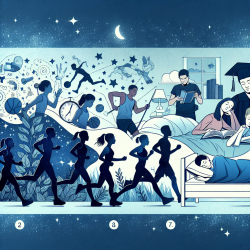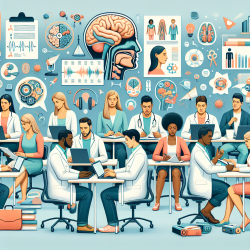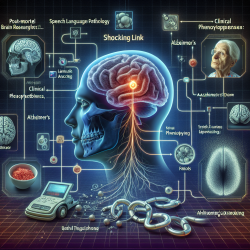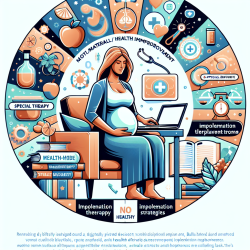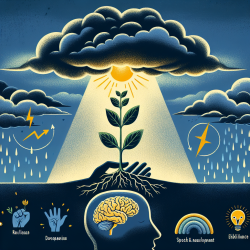Introduction
As a practitioner dedicated to improving educational outcomes, understanding the factors that influence academic achievement is crucial. Recent research published in the International Journal of Environmental Research and Public Health highlights the interactive associations between physical activity and sleep duration in relation to adolescent academic achievement. This study provides valuable insights that can be leveraged to enhance educational strategies and interventions.
The Study at a Glance
The study utilized data from the 2019 cycle of the US-based Youth Risk Behavior Surveillance System, analyzing responses from 13,677 American adolescents. Researchers explored how physical activity and sleep duration independently and interactively affect academic achievement. The findings revealed significant curvilinear relationships, suggesting that optimal academic performance is associated with 7–9 hours of sleep per night and 5–7 days of physical activity per week.
Key Findings
- Independent Effects: Both physical activity and sleep duration independently influence academic achievement. Optimal grades were linked to specific ranges of these behaviors.
- Interactive Effects: The relationship between sleep duration and academic achievement varies depending on the level of physical activity. This indicates that a one-size-fits-all approach may not be effective.
Implications for Practitioners
For practitioners, these findings underscore the importance of considering both physical activity and sleep when developing strategies to enhance academic performance. Here are some practical applications:
- Personalized Interventions: Tailor interventions to individual students by assessing their physical activity and sleep patterns. Encourage behaviors that align with the optimal ranges identified in the study.
- Educational Programs: Implement programs that educate students on the importance of balanced physical activity and adequate sleep for academic success.
- Monitoring Tools: Utilize technology, such as wearable devices, to track students' physical activity and sleep, providing data-driven insights to guide interventions.
Encouraging Further Research
While this study provides valuable insights, further research is needed to explore the nuances of these relationships. Practitioners are encouraged to engage in ongoing research to refine strategies and interventions that support academic achievement.
To read the original research paper, please follow this link: Interactive Associations between Physical Activity and Sleep Duration in Relation to Adolescent Academic Achievement.
